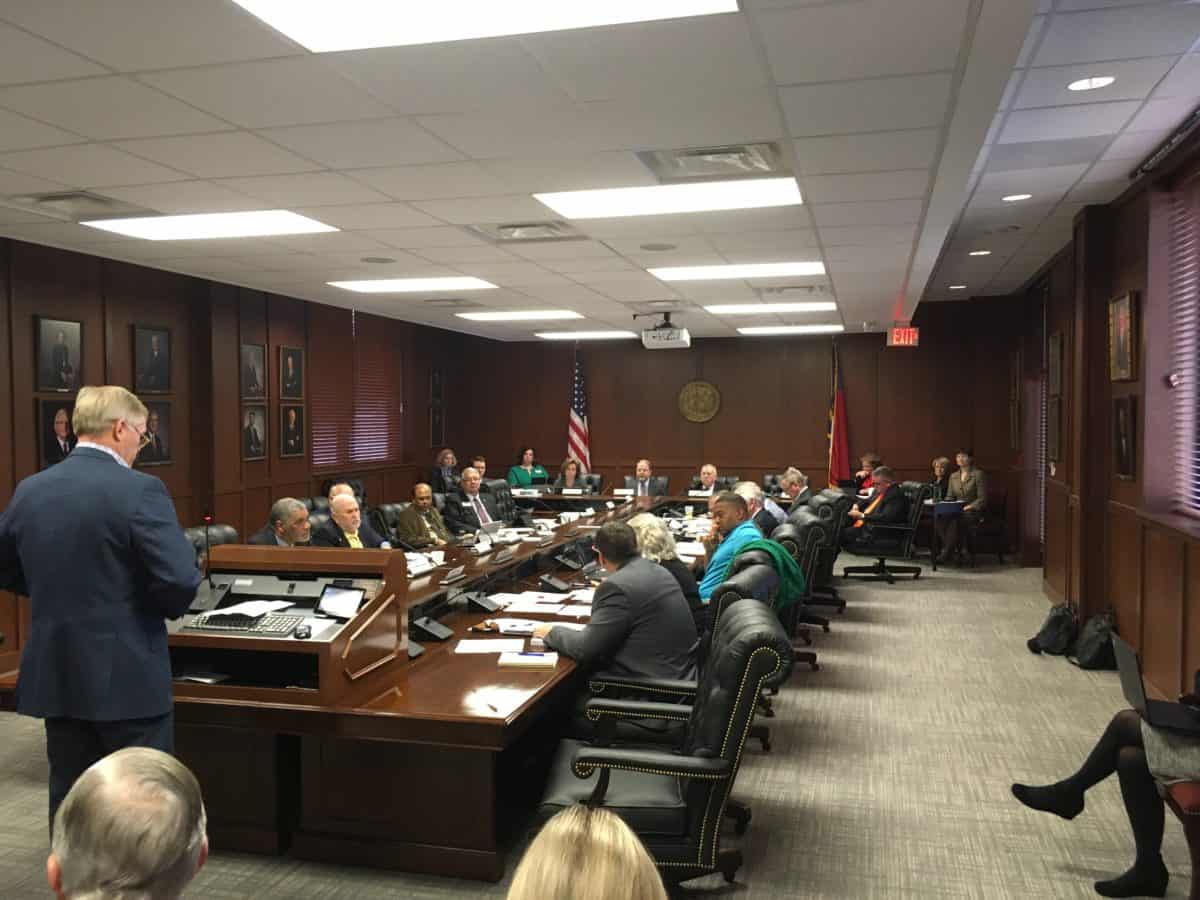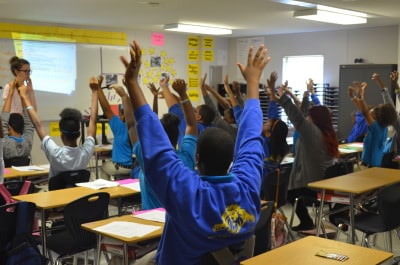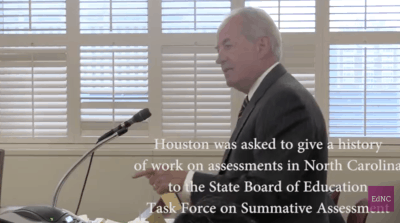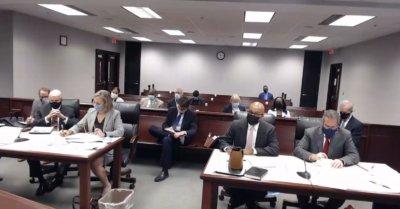
In December, the the Southern Association of Colleges and Schools Commission on Colleges (SACSCOC) put Roanoke-Chowan Community College on probation for another six months.
SACSCOC is the agency charged with accreditation for the state’s community colleges. It initially put Roanoke-Chowan on probation in June 2019. Currently, Roanoke-Chowan is the only community college in the state on probation, according to the North Carolina Community Colleges System Office.
The State Board of Community Colleges heard about the most recent probation decision at its meeting last week.
“I can’t stress enough with the Roanoke-Chowan people how serious this is,” said Board Chair Breeden Blackwell during a board committee meeting.
The specific reasons given for the probation are the school’s failures in three areas, according to a document presented at the State Board meeting.
- Distinction between the Board of Trustees at the college and the administration: “The institution’s governing board ensures a clear and appropriate distinction between the policy-making function of the board and the responsibility of the administration and faculty to administer and implement policy.”
- CEO control: “The institution’s chief executive officer has ultimate responsibility for, and exercises appropriate control over the institution’s educational, administrative, and fiscal programs and services.”
- Personnel appointment and evaluation: “The institution publishes and implements policies regarding the appointment, employment, and regular evaluation of nonfaculty personnel.”
The citation of these three reasons for probation is actually an improvement. Previously, the school had two other violations listed. According to a SACSCOC document, those included:
- Integrity: “To operate with integrity in all matters.”
- Board self-evaluation: “Has a governing board to define and regularly evaluate its responsibilities and expectations.”
While SACSCOC did not release details of the reasons behind the violations, an investigative report from the Office of the State Auditor into the school from May 2018 provides more insight.
According to that report, the brother of the college’s Board of Trustees Chair was employed as Plant Operations Foreman and acting Director of Facilities and Maintenance at the institution at the time. The auditor’s report said this may violate SACSCOC accreditation standards.
Additionally, the report states that the school has high turnover in the president position, with four different presidents heading the school between September 2012 and November 2017. The report states that staff from the auditor’s office contacted each of those presidents.
“Former presidents along with current and former employees attributed the high turnover rate to the Board of Trustees’ (Board) excessive involvement in day-to-day College operations,” the auditor’s report stated.
The report could not conclusively list trustee involvement as a reason for the turnover, however.
The auditor’s report also took issue with Board members’ behavior during an exit interview with staff from the auditor’s office.
“During this exit conference, select board members failed to acknowledge the seriousness of the situation and at times were uncooperative, belligerent, and argumentative,” the report states.
The auditor’s report also contains a response from then-college president Stanley Elliott to the different allegations.
The accreditation agency requires that “both the presiding officer of the board and a majority of other voting members of the board are free of any contractual, employment, or personal or familial financial interest in the institution.”
Elliot said that the accreditation agency requirement that “both the presiding officer and a majority of other voting members clearly means that the Chairman and at least six other voting members of the Board would be free from any contractual, employment, personal, or familial interest in the institution.”
He went on to say that this is the case for the trustees and that the board chair recused himself on matters that touched upon his brother’s role at the college.
The auditor’s report stated however that the Chief of Staff of SACSCOC said that the accreditation standard means that neither the board chair nor a majority of the voting board members can have any of these conflicts.
Elliot also said that Roanoke-Chowan “has a clear and appropriate distinction between its role as the policy-making function of the board, and the responsibility of the administration and faculty to administer and implement policy.”
At the State Board of Community Colleges, much of the discussion was taken up with the role of president at Roanoke-Chowan. Currently, an interim president, Audre Levy, is in the role, but she is slated to end her term there in June.
“That really complicates this, doesn’t it?” said board member Ann Whitford.
Board member William Holder, who heads a State Board advisory committee that is working with the college, said Roanoke-Chowan is getting ready to ramp up a search for a new president.
“I have the feeling we will get past SACSCOC successfully, but the presidency, in my opinion, is the bigger challenge to the school,” he said.
Members of the State Board of Community Colleges attended a Roanoke-Chowan Board of Trustees meeting in October. At that meeting, Holder talked with the trustees about the accreditation situation and expressed optimism.
“The things they’re asking for are not really things that can’t be fixed,” he said. “That’s the good news in this whole conversation. This can be done. And I think the people who can get it done are already here in the room.”
SACSCOC will rule again on the status of Roanoke-Chowan in June. At that time, the school will have been on probation for a year, and on monitoring status for two years. The most it can be on either of those statuses is two years.
Calls and emails to Roanoke-Chowan President Audre Levy were not returned.
Recommended reading



